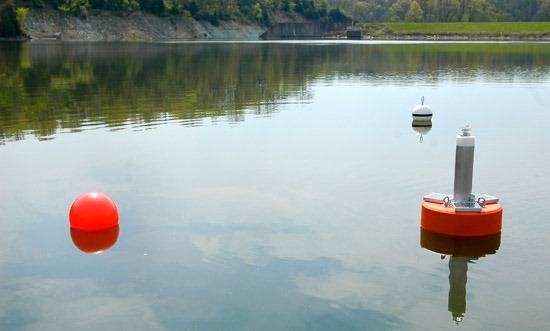A new study, “Evaluating the Effectiveness of Fish Consumption Advisories: Modeling Prenatal, Postnatal, and Childhood Exposures to Persistent Organic Pollutants,” recently published in the journal Environmental Health Perspectives, suggests that fish consumption advisories for expecting mothers are ineffective in reducing infant exposure to long-lived contaminants like persistent organic pollutants (POPs). The study, performed by a team of researchers including University of Toronto Scarborough PhD student Matt Binnington and Professor Frank Wania, looks at how different levels of environmental contamination, a mother’s compliance with advisories and the behavior of chemicals in the body influenced exposure in her children.
Their model estimates that women who stop eating fish shortly before or during their pregnancy may only lower their child’s exposure to POPs by 10 to 15 per cent. “We have to be careful in saying fish advisories don’t work at all because they can work very well for reducing exposure to quickly eliminated contaminants, such as mercury,” says Binnington, according to the news release, Fish consumption advisories fail to cover all types of contaminants. “But for POPs we found that they are not very effective.”
POPs are compounds that take a long time to break down and as a result can persist in the environment and begin to accumulate in humans by way of the food chain
While many POPs such as DDT and PCBs have long been banned from production, they still exist in the environment. Fish advisories have been developed for these chemicals because they are easily passed from mothers to their children during pregnancy and nursing, potentially impacting healthy infant neurodevelopment.
Binnington says consumption advisories for many POPs are ineffective because they can remain in the body for years or even decades due to properties that make it difficult for the human body to eliminate them. The same is not true for mercury-based advisories, as the time it remains in the body is much shorter compared to POPs.
By temporarily adjusting your diet, you can reduce exposure to some heavy metals
“Something like mercury stays in the body for only a few months and by temporarily adjusting your diet you can reduce exposure,” says Binnington, according to the news release. The limitation with consumption advisories is that while they inform people what not to eat, they do not offer much in the way of healthy alternatives, says Wania. In fact, substituting fish with meat such as beef may even end up doing more harm.
“Substituting fish with beef may actually result in higher exposure to other contaminants,” he says, according to the news release, adding there is also a loss of nutritional benefits by not eating fish. The research, which received funding through NSERC) and the Northern Contaminants Program (NCP) of the Canadian Department for Aboriginal Affairs and Northern Development (AANDC), is published in the journal Environmental Health Perspectives.















